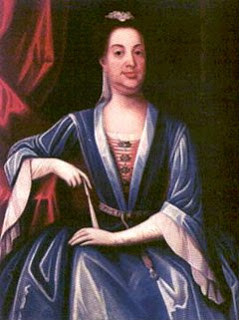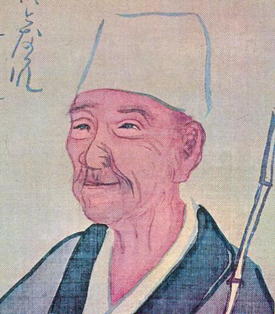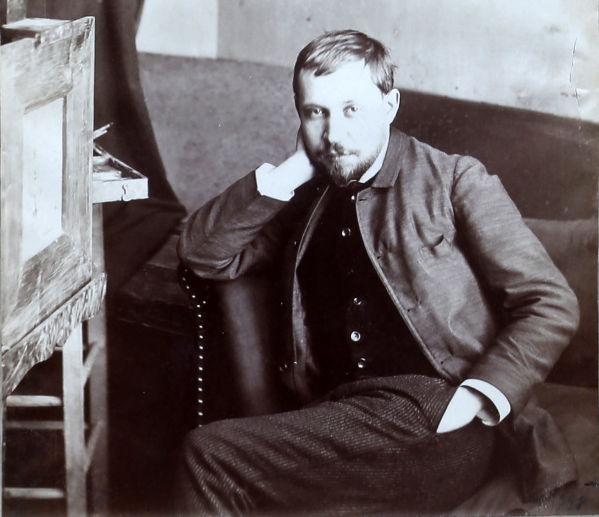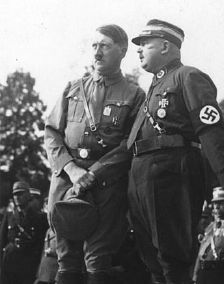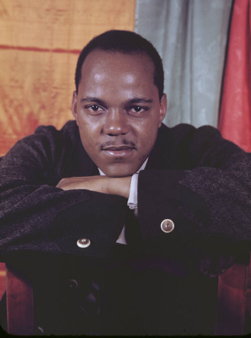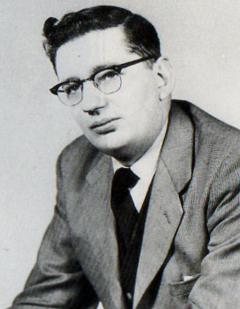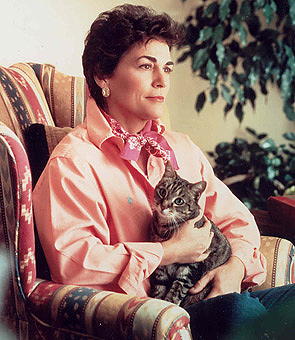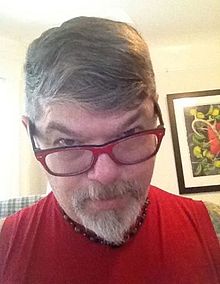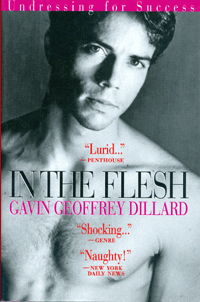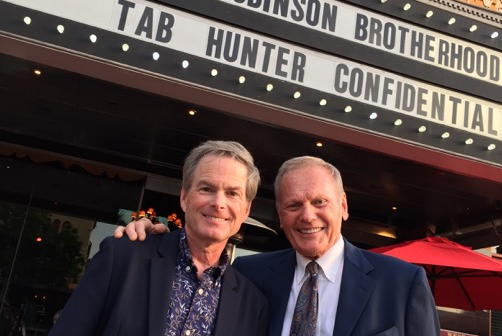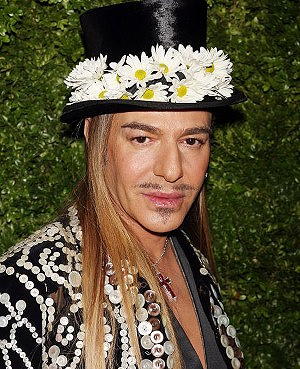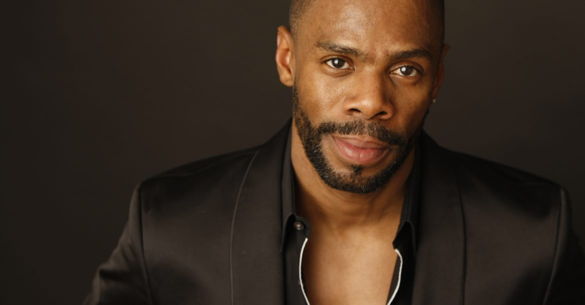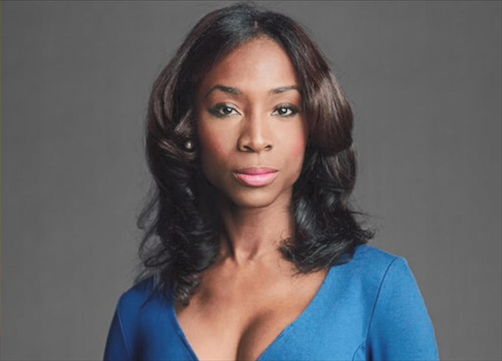|
presents THIS DAY IN GAY HISTORY based on: The White Crane Institute's 'Gay Wisdom', Gay Birthdays, Gay For Today, Famous GLBT, glbt-Gay Encylopedia, Today in Gay History, Wikipedia, and more …
Collected by Ted November 28 [{(o)}]|[{(o)}]|[{(o)}]|[{(o)}]| [{(o)}]|[{(o)}]
1661 – Edward Hyde, 3rd Earl of Clarendon (d.1723), styled Viscount Cornbury between 1674 and 1709, was Governor of New York and New Jersey between 1701 and 1708, and is perhaps best known for his cross-dressing while in office. Cornbury came to be regarded in the historical literature as a moral profligate, sunk in corruption: possibly the worst governor Britain ever imposed on an American colony. The early accounts claim he took bribes and plundered the public treasury. Nineteenth century historian George Bancroft said that Cornbury illustrated the worst form of the English aristocracy's "arrogance, joined to intellectual imbecility". Later historians characterise him as a "degenerate and pervert who is said to have spent half of his time dressed in women's clothes", a "fop and a wastrel". He is said to have delivered a "flowery panegyric on his wife's ears" after which he invited every gentleman present to feel precisely how shell-like they were; to have misappropriated £1500 meant for the defence of New York Harbor, and, scandalously, to have dressed in women's clothing and lurked "behind trees to pounce, shrieking with laughter, on his victims". Cornbury is reported to have opened the 1702 New York Assembly clad in a hooped gown and an elaborate headdress and carrying a fan, imitative of the style of Queen Anne. When his choice of clothing was questioned, he replied, "You are all very stupid people not to see the propriety of it all. In this place and occasion, I represent a woman (the Queen), and in all respects I ought to represent her as faithfully as I can." It is also said that in August 1707, when his wife Lady Cornbury died, His High Mightiness (as he preferred to be called) attended the funeral again dressed as a woman. It was shortly after this that mounting complaints from colonists prompted the Queen to remove Cornbury from office.
1694 – On this date the Japanese poet master Matsuo Basho was born. The most famous poet of the Edo period in Japan, during his lifetime, Basho was recognized for his works in the collaborative haikai no renga form; today, after centuries of commentary, he is recognized as a master of brief and clear haiku. His poetry is internationally renowned, and within Japan many of his poems are reproduced on monuments and traditional sites. According to
Jane Reichold's Basho: The Complete Haiku, Matsuo Basho, the poet once
wrote "There was a time when I was fascinated with the ways of homosexual
love," and this has been suggested as being connected to a sudden move Basho
made at age 22 from his home town of Ueno to Kyoto.
1863 – The French painter and engraver Charles Filiger (d.1928), was born on this date (b. 1863). A friend of Gauguin's he took as his method Gauguin's use of flat color and at times seem to venture further into the area of decorative abstraction than the master. Filiger portrayed the piety of the peasants. Intensely religious himself, and suffering from guilt about his homosexuality, he found it far easier than his more sophisticated friends. But where they lacked Gauguin's psychological insight, Filiger lacked his aesthetic boldness. Rather than invent a new method of painting, Filiger preferred to refurbish the old ones. In this he bears some similarity to the Pre-Raphaelites, in that he also returned to pre-Renaissance sources for inspiration, in his case to Giotto and the Sienese. 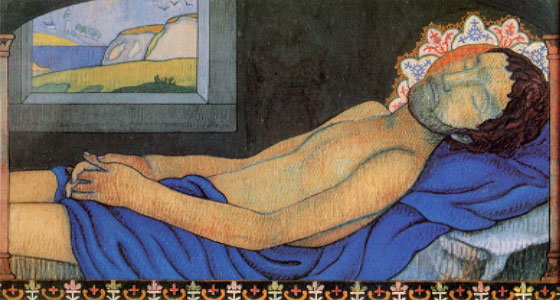 He studied in Paris at the Académie Colarossi. He settled in Brittany in 1889, where he was associated with Gauguin and his circle at Pont-Aven, but he remained a mystic and a recluse. The Breton setting, with its stark landscape and devout peasant inhabitants, provided fertile ground for the development of Filiger's mystical imagery and deliberate archaisms. Filiger's friend, the painter Emile Bernard, characterized Filiger's style as an amalgam of Byzantine and Breton popular art forms. The geometric quality and the expressionless faces in his gouaches of sacred subjects such as Virgin and Child (1892) reveal Filiger's love of early Italian painting and the Byzantine tradition. Evident too in the heavy outlines and flat colors of his work are the cloisonnism of the Pont-Aven school and the influence of Breton and Epinal popular prints. Filiger's landscapes, such as Breton Shore (1893), share with Gauguin's paintings an abstract, decorative quality and rigorous simplification.
1887 – Born: Ernst Röhm, German military officer and later the commander and co-founder of the Nazi Sturmabteilung (Stormtroopers), also known as the SA. Following the failed Beer Hall Putsch on 9 November 1923, Röhm, Hitler, General Erich Ludendorff, Lt-Colonel Kriebel and six others were tried in February 1924 on charges of treason. Röhm was found guilty and received one year and three months in prison. However, the sentence was suspended and he was granted a conditional discharge. Hitler was also found guilty and was sentenced to five years imprisonment, although he would only serve nine months. In September 1930, as a consequence of the Stennes Revolt in Berlin, Hitler assumed supreme command of the SA as its new Oberster SA-Führer, and sent a personal request to Röhm, asking that he return to Germany to serve as the SA's chief of staff. Röhm accepted this offer in 1931, bringing radical new ideas to the SA and staffing its senior leadership with several of his close friends. The more or less open homosexuality of Röhm and other SA leaders (such as Edmund Heines) along with the stormtroopers' penchant for drinking and street violence added to the SA's notorious reputation in Germany. The SA was a political army, protecting the party leadership and terrorizing (primarily communist) opponents such as the Red Front. The SA's street-wise use of intimidation contributed to the rise of the Nazis, first in Munich and later throughout Germany.
Many writers have suggested Röhm and his deputy Edmund Heines allowed or encouraged the promotion of many individuals into SA leadership as a result of liaisons with both themselves and other powerful SA figures (for example, Karl Ernst had been a bouncer at a Gay nightclub in Berlin) in spite of anti-Gay Nazi policies which included the strengthening of Paragraph 175 - criminalizing homosexual acts - of the German Criminal Code of 1871. By this time, Röhm and Hitler were so close that Hitler addressed Röhm as du, the German familiar form of "you." In turn, Röhm was the only member of the party who addressed Hitler as "Adolf," rather than "my Führer." Röhm's power soon came to challenge Hitler's own. Although determined to curb the power of the SA, Hitler put off doing away with his long-time comrade as long as he could. Himmler, Heydrich and Göring used Röhm's published anti-Hitler rhetoric to assert the SA was plotting to overthrow Hitler. The SA was purged during the "Night of the Long Knives" in June 1934. Hitler arranged to arrest Röhm personally at a resort in Bad Wiessee on June 30th. Röhm was briefly held without trial at Stadelheim Prison in Munich in cell 70. Hitler was uneasy authorizing his execution and as a last act of compassion, ensured he had an opportunity to commit suicide first. On July 2, Röhm was visited by SS-Brigadeführer Theodor Eicke (then Kommandant of Dachau) and SS-Sturmbannführer Michael Lippert, who offered Röhm a pistol. When Röhm refused to commit suicide, Lippert shot Röhm at point-blank range. The purge of the SA was legalized the next day by a one-paragraph decree: Law Regarding Measures of State Self-Defense. John Toland noted that Hitler, while disapproving, had long been privately aware Röhm was homosexual but Nazi propaganda accounts of the purge made use of Röhm's sexual orientation as a justification of his execution
1914 – On this date the African American poet, novelist and playwright Owen Dodson was born (d.1983). Though not as remembered as his contemporaries, Dodson was one of the leading African American poets of his time, associated with the generation of black poets following the Harlem Renaissance. Dodson's poetry varied widely and covered a broad range of subjects, styles, and forms. He wrote at times, though rarely, in black dialect, and at others quoted and alluded to classical poetry and drama. He wrote about sexuality—he was gay, though he was briefly engaged to Priscilla Heath, a Bates classmate—and about religion. He was closely associated with poets W. H. Auden and William Stanley Braithwaite, but his influences were difficult to pin down. Dodson died from cardiovascular disease at the age of 69. Dodson is one of the subjects of Hilton Als' 1996 book The Women; according to Als, Dodson was his mentor and lover.
1928 – Tony Dyson (d.2002) was a British literary critic, university lecturer, educational activist and gay rights campaigner. Educated at Pembroke College, Cambridge, his academic career began in 1955 when he was appointed Assistant Lecturer in English Literature at the University of North Wales, Bangor. From there, he went to the University of East Anglia where he was later appointed Reader. He took early retirement in the 1980s. Dyson single-handedly took the initiative in forming the Homosexual Law Reform Society (HLRS) in May 1958. He had sent hundreds of letters to Members of Parliament and celebrities asking for their support, successfully bringing together an impressive collection of distinguished names, including Noel Annan, Lord Attlee, A. J. Ayer, Isaiah Berlin, Trevor Huddleston, Julian Huxley, C. Day-Lewis, J. B. Priestley, Bertrand Russell, Donald Soper, A.J.P Taylor, Angus Wilson and Barbara Wootton. The campaign began with a letter, signed by all these figures, published in The Times on 7 March 1958, calling for the implementation of the Wolfenden Committee's recommendations that the law in relation to male homosexual relations be liberalised. The same group of people simultaneously founded the Albany Trust, the charitable arm of the HLRS, which became the pioneer national counselling agency for gay men and lesbians. During this time he met Cliff Tucker, a senior executive at British Petroleum and a Labour Party councillor in inner London. They lived together for 35 years until Cliff Tucker's death, in 1993. Dyson followed Tucker's wishes and bequeathed the proceeds of their Hampstead home to Tucker's alma mater, the University of Wales, Lampeter. As a result, there is now a scholarship and lecture theatre which bear Tucker's name, and a Fellowship in Poetry named for Dyson. In 1959 Dyson, together with C.B. Cox, founded the literary journal Critical Quarterly, described in New Pelican Guide to English Literature as "probably the most influential English literary-critical journal in the academic field over the post-war decades". As a literary critic, Dyson has published works on Shakespeare, Dickens, Samuel Coleridge Taylor and Sylvia Plath, among others. Tony Dyson died in London in July 2002 after suffering from leukemia for several years.
1944 – This day is also the birthday of the writer and Gay rights activist Rita Mae Brown. Best known for her mysteries and other novels (Rubyfruit Jungle), she is also an Emmy-nominated screenwriter. In the 1960s, Brown attended the University of Florida but was expelled; she states that it was for her participation in a civil rights rally. She moved to New York and attended New York University, where she received a degree in classics and English. Later she received another degree in cinematography from the New York School of Visual Arts. She also holds a doctorate in political science from the Institute for Policy Studies in Washington, D.C. In the late 1960s, Brown turned her attention to politics. She became active in the American Civil Rights Movement, the anti-war movement, the Gay Liberation movement and the feminist movement. She cofounded the Student Homophile League and participated in the Stonewall riots (pg 243 of the 1997 edition of "Rita Will": "There stood Martha Shelley and I in a sea of rioting Gay men...'Martha, we'd better get the hell out of here.'") in New York City. She took an administrative position with the fledgling National Organization for Women, but angrily resigned in February 1970 over Betty Friedan's anti-Gay remarks and NOW's attempts to distance itself from Lesbian organizations. She played a leading role in the "Lavender Menace" zap of the Second Congress to Unite Women on May 1, 1970, which protested Friedan's remarks and the exclusion of Lesbians from the women's movement. In the early 1970s, she became a founding member of The Furies Collective, the groundbreaking, Washington, DC based Lesbian feminist newspaper collective which held that heterosexuality was the root of all oppression. She is the former girlfriend of tennis player Martina Navratilova, actress and writer Fannie Flagg, socialite Judy Nelson and politician Elaine Noble. Brown enjoys American fox hunting and is master of her Fox Hunt Club. She has also played polo and started the woman-only Blue Ridge Polo Club. The woman is funny, she's deadly serious, and you'd better damn well listen
up. She's just like Molly Bolt, the heroine of her semi-autobiographical
Rubyfruit Jungle who locks her adoptive mother in the root cellar. She's a
born fighter and doesn't take any nonsense from anyone. She'd be awfully
hard to take if it weren't for the fact that she's right in what she says
almost all the time. And she says exactly what most people don't want to
hear. For example,
1949 – Jok Church (d.2016) was an American cartoonist who created the Universal Press Syndicate syndicated comic strip You Can With Beakman and Jax, later adapted into the TV series Beakman's World. The series premiered September 18, 1992[3] on The Learning Channel (TLC) cable network and in national syndication (225 stations, a freshman year record). On September 18, 1993 it moved from national syndication to CBS Saturday morning children's lineup. At the peak of its popularity, it was seen in nearly 90 countries around the world. Jok Church was born in Akron, Ohio raised in Akron and Munroe Falls, Ohio and attended high school in Stow, Ohio. After running away from home, Church hitchhiked to San Francisco, California and began working in what was then called "underground" radio with news director careers at KTIM, San Rafael; KERS and KZAP, Sacramento. As a co-founder and resident at Damian House Gay Men's Collective in Sacramento, Church "came out" as a gay man on the air on KZAP in 1970. He and his late-partner Adam Ciesielski were together for 34 years. Church was also the webmaster for environmental artist, Christo whom he met in 1976 during the installation of "Running Fence." Jok attended the National March on Washington for Lesbian and Gay Rights with Adam Ciesielski on October 14, 1979. Together, they recorded a documentary vinyl LP of the main speeches at the event. The recording includes the voices of Robin Tyler, Steve Ault, Tom Robinson, Lucia Valeska, Allen Ginsberg, Arlie Scott, Richard Ashworth, Florynce Kennedy, Charles Law, Mary Watkins & Company, Kate Millet, Reverend Troy Perry, and people on the Gay Freedom Train. Adam Ciesielski is credited for the photos. The record was released by Magnus Records of Sacramento, California in association with Alternate Publishing. Houston LGBT History (.org) holds an online recording of the record.  He created his comic strip You Can with Beakman & Jax in 1991 for his local newspaper in Marin County, California—inspired by a stint answering kids' letters for Lucasfilm. It was the first ever syndicated newspaper comic drawn and distributed by computer, a Macintosh SE using Adobe Illustrator-88. The comic strip does not answer readers' questions directly; it gives directions for creating an experiment for one to discover the answer independently. His weekly newspaper feature was posted to his Twitter mini-blog page the week after newspapers have published it. Jok Church died in San Francisco from a heart attack on April 29, 2016.
1954 – Gavin Geoffrey Dillard is an American poet, songwriter and pornstar. He is the author of seven books of homoerotic poetry, two anthologies of poetry, and several popular songs. He wrote many of the lyrics for Bark! The Musical. During the late 1970s, as 'Gavin Geoffrey", he became immediately famous in the porn world of the late seventies with his starring role in Steve Scott's "Track Meet" - at that time, the largest budgeted gay film ever produced. Dillard was living in Hollywood, California, and his experiences there figured heavily in his autobiography, In the Flesh: Undressing for Success, published in 1997 by Barricade Books. Dillard's portraits have been drawn by Tom of Finland and Don Bachardy. Photos of Dillard have appeared in Playgirl and many gay publications. 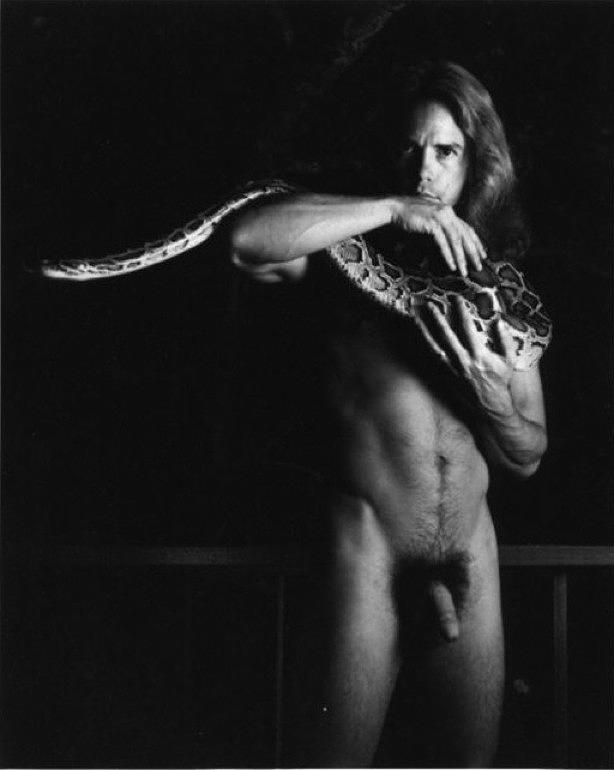 (Click for larger) Dillard is the author of seven books of homoerotic poetry, the first of which was published when he was 20. Dillard collected and published two anthologies of gay poetry, Between the Cracks, and A Day for a Lay: A Century of Gay Poetry. Many of Dillard's private letters, notes, and files were donated by Dillard to the Gay and Lesbian Archives of the San Francisco Public Library.
1959 – Allan Glaser is an American film producer known for the feature films Lust in the Dust, Tab Hunter Confidential, and Tab & Tony. Glaser was born in Norfolk, Virginia. While attending the University of Southern California, Glaser was employed by 20th Century Fox Television on such shows as M*A*S*H, Trapper John, M.D., and Dynasty. Glaser ultimately became director of acquisitions of feature films at 20th Century Fox. It was while in this position he met Tab Hunter. The two formed Fox Run Productions and produced the film Lust in the Dust starring Hunter, Divine, & Lainie Kazan. Released in 1985, the film was a hit and landed Glaser a production deal back at Fox on his next film Sorority Confidential, written by Patricia Resnick, writer of the film 9 to 5. Glaser's next film, Dark Horse, was based on a story by Hunter. The feature starred Mimi Rogers and Ed Begley, Jr. It premiered at the Cannes Film Festival. Glaser talked Hunter into writing his autobiography Tab Hunter Confidential which became a New York Times Best Seller. Glaser turned the book into a critically acclaimed documentary in 2015, also entitled Tab Hunter Confidential.Between his feature film work, Glaser has worked as a production executive for several major studios. In June 2018, The Hollywood Reporter announced Glaser will be producing a feature film based on the doc tentatively entitled Tab & Tony with J.J. Abrams/Bad Robot for Paramount Pictures. Glaser and Hunter began a relationship in 1983 and remained together for the next 35 years until Hunter's death in July 2018. They were married in 2013.
1960 – John Galliano is a Gibraltar-born British fashion designer who was head designer of the French fashion companies John Galliano S.A. (1993 to April 2011), Givenchy (January 1996 to October 1996), and Christian Dior (October 1996 to March 2011). He was born in Gibraltar to a Gibraltarian father, Juan Galliano, and a Spanish mother, Anita, and has two sisters. Galliano's father was a plumber. His family moved to England in pursuit of work when Galliano was six, and settled in Streatham, South London, before moving to Dulwich and later to Brockley. He was raised in a strict Roman Catholic family. Galliano, who was shy and diffident, often spoke of his struggle to fit in. Recalling his early days, he once admitted: "I don't think people here understood where I was coming from." His mother, a flamenco teacher, would dress him in his "smartest" outfit even for a trip to the local shops. This, combined with his creative sensibilities, saw him frequently bullied at the London boys' grammar school he attended. But he survived this to become one of the leading designers for French fashion houses, as well as creating his own. On 25 February 2011, Dior announced that it had suspended Galliano following his arrest over an alleged anti-Semitic tirade in a Paris bar. The same day, Paris-based citizen journalism site Citizenside received video of Galliano on a similar rant in the same bar the previous December. In the video a drunk Galliano hurls anti-semitic rants at a group of Italian women and declares "I love Hitler... People like you would be dead. Your mothers, your forefathers would all be fucking gassed." In 2009, Galliano received the French Legion of Honour, previously awarded to fashion luminaries such as Hubert de Givenchy, Yves Saint Laurent, Azzedine Alaïa and Suzy Menkes. Under a decree signed by President Francois Hollande, the honor was revoked, due to the Paris Courts' decision that Galliano was guilty of making anti-Semitic remarks, which was published in France's official journal on Thursday 23 August 2012. Galliano no longer has the right to wear the French Legion of Honour medal. Galliano shared his Paris home with his long-term boyfriend Alexis Roche, a style consultant. Galliano became a familiar figure on the streets of Le Marais, an area of Paris popular with gays — and also the city's Jewish community.
1969 – Colman Domingo is an American actor, writer and director born on this date. He gained acclaim for so many performances, and is a force to be reckoned with in the theater and film. His most recent role is in the revival of The Color Purple. Domingo has played supporting roles in the films Lincoln by Steven Spielberg, Selma by Ava DuVernay, If Beale Street Could Talk by Barry Jenkins, Ma Rainey's Black Bottom by George C. Wolfe and Zola by by Janicza Bravo. Domingo was born in Philadelphia, Pennsylvania. His father is from Belize, and is from a Guatemalan family. Domingo attended Temple University, where he majored in journalism. Soon thereafter he moved to San Francisco, California, where he started acting, mainly in theatre productions. Domingo starred as Mr. Franklin Jones, Joop, and Mr. Venus, in the critically acclaimed rock musical Passing Strange, which, after a successful 2007 run at The Public Theater, opened on Broadway on February 28, 2008. He received an Obie Award in spring 2008 as part of the ensemble of Passing Strange Off-Broadway and reprised his roles in the film version of Passing Strange, directed by Spike Lee, which made its premiere at the Sundance Film Festival in January 2009. In 2010, Domingo's self-penned, one-man autobiographical play A Boy and His Soul premiered Off-Broadway at the Vineyard Theatre, for which he won a Lucille Lortel Award for Outstanding Solo Show. He was also nominated for a Drama Desk Award and a Drama League Award. In 2015, Domingo began appearing in a recurring role on AMC's post-apocalyptic, zombie series Fear the Walking Dead, as a character named Victor Strand. In December 2015, it was announced that Domingo was promoted to series regular for Season 2 of the series. In 2023, Domingo will play Bayard Rustin in the new biopic 'Rustin,' about the activist's life. Produced by Oscar-winning American Beauty producer Bruce Cohen and Higher Ground's Tonia Davis, Rustin also features an all-star cast including Chris Rock, Glynn Turman, Jeffrey Wright, Da'Vine Joy Randolph, and Audra McDonald, among others. Domingo has been married to his husband, Raúl Domingo, since 2014.
Staub started his career as a traffic reporter at CHYM-FM in Kitchener, ON, on May 15, 1997. He attended Conestoga College and has achieved success mainly in Western Canada, both in Top 40 radio and for TV stations Citytv and Shaw TV. In 2001, at age 22, he was the youngest DJ in a major time slot in the Vancouver market. He was removed from his position at Z95 in May 2002. Soon after, he landed a weekend time slot at Power 92 in Edmonton. In 2005, he was a featured host for the newly airing Edmonton station The Bounce. He has been a DJ at CHYM-FM, CKGL, CJIB, CKIK-FM, CKZZ-FM (in the evening time), CKNG-FM, CHBN-FM, and CFBT-FM. Staub is also one of Canada's first openly gay DJs in the Vancouver radio market. In 2008 he co-hosted OUTtv's Let's Talk Sex, which also airs on its US counterpart here!. There is talk of a second season of Let's Talk Sex; however, there is no word on whether or not Staub will return to that show. Recently Jonny has ventured online and started blogging on Homorazzi.com, a site where 'homos judge everything' - think Perez Hilton meets The Hills. As part of the Homorazzi.com team, Jonny hosts weekly segments called "Hawt Topics". Staub now lives in Squamish, BC, with his partner, and the commute to Vancouver — as you can imagine — is not super friendly. 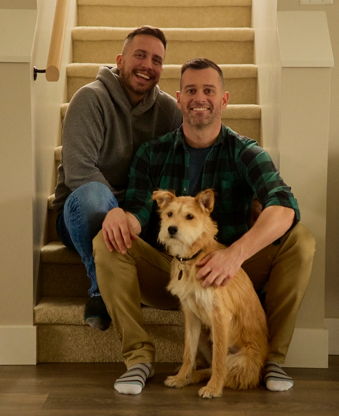 Staub, partner, and Ranger
1980 – Angelica Ross is an American actress, businesswoman, and transgender rights advocate. A self-taught computer programmer, she went on to become founder and CEO of TransTech Social Enterprises, a firm that helps employ transgender people in the tech industry. Ross began her acting career in the web series Her Story (2016), after which she received further recognition and critical acclaim for her starring roles in the drama series Pose (2018–2021) and the anthology horror series American Horror Story (2019–present), both from FX. Angelica Ross was born in Kenosha, Wisconsin, then raised to the north in nearby Racine. Ross, a trans woman, has said she was perceived as feminine from a young age. In 1998, when she was seventeen, she came out as gay to her mother, an evangelical Christian. Her mother did not receive the news well as, according to Ross, "she told me I should commit suicide or she would, because she couldn't have someone like me as her child." Ross considered ending her own life and overdosed on medication but survived. Upon graduating high school at 17, Ross briefly attended the University of Wisconsin–Parkside before dropping out after one semester. Ross decided to join the U.S. Navy (after her parents signed a waiver so that she could join as a minor) in order to qualify for the G.I. Bill. Ross initially moved to Rochester, New York, before being stationed in Yokosuka, Kanagawa. After six months of service, she requested and received an "uncharacterized" discharge under the "Don't Ask Don't Tell" policy (which was then in force) due to being harassed by enlisted men who coerced her into saying she was gay. Ross moved back home, and made friends with a drag queen called Traci Ross who helped her begin her gender transition at the age of 19. Upon discovering that she was transitioning, her parents threw her out and Ross moved in with her biological father (who was slightly more accepting of her) in Roanoke, Virginia. Although Ross and her parents were estranged for a time, she states that their relationship has since been mended. During the six years that she lived in Roanoke, Ross worked as a waitress at Applebee's so that she could earn enough money to pay rent and attend cosmetology school. She was let go from her waitress job due to discrimination. Ross then moved to Hollywood, Florida and worked as a model and escort, then web manager, until 2003. She started a web development and graphic design business and took acting classes. She later moved to Chicago to become the employment coordinator for the Trans Life Center. More recently, she signed a deal with Pigeon to develop its television projects. Ross was once engaged, but called off the engagement as her fiancé did not want others to know that Ross was transgender.
1983 – Tyler Glenn is an American musician and the lead vocalist and keyboardist of the American rock band Neon Trees. He is a member of The Church of Jesus Christ of Latter-day Saints. After high school, he served a Mormon mission in Nebraska. Neon Trees' origins lay in Southern California in 2004 after Glenn's father suggested he play music with guitarist Chris Allen, the son of one of Glenn's father's friends. In 2005, they moved to Provo, Utah and formally founded Neon Trees, adding bassist Branden Campbell and drummer/backing vocalist Elaine Doty (who is now Elaine Bradley) in 2007. The band became well known in the music scene around Provo and Salt Lake City. In 2007, Ronnie Vannucci, Jr. (drummer for The Killers), who knew Campbell from a previous band, saw Neon Trees playing at a small venue in Las Vegas and was impressed. As such, in 2008, The Killers invited the band to open for them during their North American tour. Neon Trees released their first full-length album, Habits, in 2010. One song from that album, "Animal", which Glenn co-wrote, hit number one on the Billboard Alternative Songs chart. A second song co-written by Glenn, "Everybody Talks" from their 2011 album Picture Show, was also a top 10 hit in 2012. In the April 10, 2014 issue of Rolling Stone, Glenn came out as gay, and discussed keeping his sexuality a secret throughout his life. Glenn says he's known he was gay since he was a young child, but kept his sexuality a secret – until now. "I had my crushes on guys throughout high school, but it was never an overwhelming thing until my twenties," he admits. "Then I'd be dating girls and in love with my straight friend and it was the worst feeling in the world," he said to Rolling Stone. With respect to his Mormon faith, Glenn stated in a 2012 interview: "The way I was raised and being a questioner, and getting a lot of my curiosities out early with drugs and alcohol, I think it’s helped me maintain a more even keel where I’m not out of control." It has been widely reported that Glenn and the other members of Neon Trees do not drink alcohol or use other drugs. In spite of these struggles, Tyler remained a full and literal believer in the LDS Church. In 2014 Tyler decided that being a closeted gay man was contributing to his suicidality. Consequently, he came out as gay to his family, band, friends — and to the world in Rolling Stone magazine — prior to the release of Pop Psychology in 2014. From this point forward it was Tyler’s full intent to find and marry a gay man, and to raise children in the LDS church as a gay married Mormon. Then, in November of 2015, the LDS church released its new policy branding same-sex married Mormons as automatic apostates, and prohibiting children of same-sex married couples from being baptized into the church. This policy change sent Tyler into a faith tailspin, ultimately shattering his life plans as a believing, gay Mormon.
1983 – Rostam Batmanglij, known by the stage name ROSTAM, is an American songwriter, composer, producer and multi-instrumentalist formerly of New York City-based indie rock band Vampire Weekend and electro-soul group Discovery. Batmanglij was born to Iranian parents, and grew up in Washington, D.C., the youngest son of Iranian immigrants. His mother is cookbook author Najmieh Batmanglij while his father is a publisher. His parents are both Iranian and arrived in D.C. in 1983. His brother is independent filmmaker Zal Batmanglij. The two collaborated on the film, Sound of My Voice, which Rostam scored and which Zal directed and co-wrote. Rostam also composed an original piece for piano that was featured in Zal's film The East. Batmanglij majored in music at Columbia University where Vampire Weekend formed in 2006. "At Columbia, I would study classical harmony in classes and I would study music on my own, and I would try to re-create songs that I love in recordings...that was really how I learned." The name of the group comes from the movie of the same name that bandmate Ezra Koenig and his friends made over summer vacations. Batmanglij began recording with Ra Ra Riot's vocalist Wes Miles on a project which was later to become Discovery. They released their debut album LP on July 7, 2009 on XL Recordings. The album features guest vocal contributions from Koenig as well as Dirty Projectors' Angel Deradoorian. Batmanglij is openly gay and talked about his sexual orientation in the magazine Out. In an Instagram post in 2015, he said that Ed Droste of the band Grizzly Bear influenced his decision to publicly come out.
1988 – A Dallas judge sentences the killer of two gay men to 30 years in prison instead of a life sentence because, as he later tells the Dallas Times Herald, "I don't much care for queers cruising the streets." The Dallas Gay Alliance joins political leaders across the country in protesting the judge's decision.
1989 – A judge in Texas was censured for giving a light sentence to a teenager who murdered two men because they were gay. He explained the sentence by saying that he couldn't give a life sentence to a teenage boy "just because he killed a couple of homosexuals."
1998 – In Allston, Massachusetts, transgender woman of color Rita Hester is murdered. The ensuing candlelight vigil a few days later was attended by 250 people and inspired the Transgender Day of Remembrance, observed each November 20th worldwide.
2017 – Justin Trudeau, on behalf of the Canadian Government, formally apologized to members of the LGBT community for actions the government took against thousands of workers in the Canadian military and public service in the Cold War era. From the 1950s to the 1990s, thousands of federal workers were fired because of their sexuality as part of a "national security" purge. Some gay members of the Canadian Armed Forces were also discharged for what was termed "psychopathic personality with abnormal sexuality." In June 2016, LGBT advocacy group Egale Canada released a report detailing the systemic discrimination and issued a number of recommendations, including that a formal apology be issued by Ottawa. Ottawa also announced that the government has earmarked over $100 million to compensate LGBT civil servants whose careers were sidelined or ended because of their sexuality. Many pointed to the Cold War as the reason for the discrimination against LGBT individuals, with the RCMP and the military fearing gay and lesbian members could be open to blackmail by the Soviet Union. "They were convinced that people could be blackmailed into selling secrets… that was the official party line adopted from McCarthyism in the States," Barry Deeprose, a prominent LGBT activist, said in 2005. An RCMP unit was tasked with rooting out homosexual public workers, including diplomat John Wendell Holmes, who admitted his homosexuality and was quietly removed from public service in 1960 after being grilled by the Mounties. The Canadian government went so far as to commission a Carleton University professor to develop a homosexuality test – a so-called "fruit machine." In one test, subjects were shown pornographic images while cameras took pictures of their pupils to see if they dilated – the idea being that if their eyes dilated while looking at images of the same sex, it suggested excitement and therefore a same-sex attraction. By the 1960s, the RCMP had a database of 9,000 "expected" lesbians and gay men working across the federal government. Sanctions for their sexuality included dismissal, demotion, denial of opportunities for promotion, being forced to live a double life and other forms of systemic discrimination, according to the 2016 Egale Canada report. In 1969, the House of Commons voted 149-55 to pass an omnibus bill that, among other things, decriminalized homosexuality and allowed abortions under certain conditions. "The view we take here is that there's no place for the state in the bedrooms of the nation," Pierre Trudeau, then Canada's acting justice minister, said in 1967 when he first introduced the bill. Despite homosexuality being removed from the Criminal Code, discrimination against LGBT military and public service members persisted for decades, particularly in the military. A military directive specifically banning homosexuality in the ranks was passed in an overhaul of the system in 1976. In August 1992, the Ontario Court of Appeals ruled that the failure to include sexual orientation in the Canadian Human Rights Act was discriminatory. The ban on LGBT individuals in the military was lifted in November that year. In October 2016, the House of Commons defence committee voted unanimously for the Liberal government to order the military ombudsman to amend the service records of LGBT ex-military members who were given dishonourable discharges because of their sexual orientation.
[{(o)}]|[{(o)}]|[{(o)}]|[{(o)}]| [{(o)}]|[{(o)}] |
